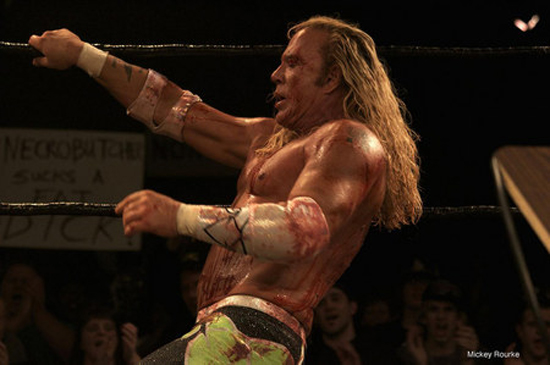by ExAddict

Late last summer, a controversy erupted in National Hockey League circles after three prominent on-ice enforcers passed away during the off-season. Wade Belak, Rick Rypien and Derek Boogaard died of a tragic combination of mental illness and addictions. The three were so called ‘tough guys’ – called on by other players to keep the action rough, and let goal-scorers do their jobs.
Much of the media-driven controversy of course was centered around the amped-up Don Cherry, a highly-charged broadcaster who labeled three other former league bruisers as ‘pukes’ for stepping outside of the shadows and linking NHL fighting to substance abuse and depression.
In typical NHL fashion, sports fans’ tongues went wagging and opinions varied from demands for a crackdown against unfair hits to protect players from concussions (the current enemy #1 in pro-hockey) to banning fighting outright.
So that’s what’s happening in hockey, a so-called ‘real sport’. We can expect that because it is one of the big four pro-sports leagues, the issues surrounding mental health and drug abuse will be addressed both by the player’s association (NHLPA) and NHL league executives.
That’s all well and good to save lives and protect athletes on the ice. But there might be another sport that needs the attention of media….
Unfortunately for fans of sports-entertainment, or ‘pro-wrestling’ as it once was called, voices calling for an increased examination of the cause and effects of mental illness, tragedy and death in this highly-athletic profession are few and far between.
With respect to the squared circle, there is a much more horrific tale lurking beneath the surface excitement of the storylines and dramatics put on by World Wrestling Entertainment (WWE), Impact Wrestling (TNA) and the hundreds of other smaller grappling organizations that operate worldwide.
Every week, for the past eighteen years, WWE and Monday Night Raw has been entertaining millions of fans who clamor to follow and cheer on names like John Cena, CM Punk, and The Undertaker as they do battle with evil-doers like R-Truth, The Miz, and Mark Henry.
Yet beyond the spotlight, there is a tough road of dues-paying and hardship for up-and-coming wrestlers as well as a path of serious discontent for names from the past. Even the biggest name in wrestling history – the immortal Hulk Hogan – now toils for the #2 wrestling organization, hobbled by numerous surgeries to repair a body damaged by nearly thirty-five years of competitive action. On average, an NHL player can expect to play five to six seasons.
For wrestlers, there is no off-season or players’ union. If it was any other sport, there would be a Congressional investigation concerning the numbers of athletes dying before age fifty.
For once-famous grapplers who fall through the cracks, hanging on to the spotlight can be mentally devastating.
Scott Hall, a former champion in WWE, is the latest tragedy to garner attention. An ESPN feature that compared the journeyman wrestler to the fictional character portrayed by Mickey Rourke in the film The Wrestler was completed in mid-October but this did little to address the susceptibility of once-popular celebrities to mental illness and substance-abuse problems.
Earlier this summer, former Impact Wrestling and WWE superstar Matt Hardy ran into his fair share of legal trouble after crashing his car and getting arrested for possession of illegal substances. His brother, the equally-as-famous Jeff Hardy, encountered similar difficulties.
So what happens after the spotlight fades and wrestlers are left fighting for fame and the few dollars that past glory affords? Hopefully, a change is afoot. Perhaps gone are the days when wrestlers used to performing in front of tens of thousands in packed arenas are left toiling in front of a few dozen fans in high school gymnasiums, left alone and isolated as they slowly descend into mental illness.
In response, WWE has instituted a tough Wellness Policy for current superstars and pays for substance abuse rehabilitation of former “independent contractors.” The Wellness Policy serves as a “three-strikes-you’re-out” safety net meant to protect current and former wrestlers from life on the road. WWE has even gone as far as to ban infamous chair-shots to the head and remove blood from broadcasts – an effort to maintain a PG friendly atmosphere and to protect the long term health of employees.
Christopher Nowinski, a Harvard graduate and former WWE Alumni himself has much to say about sports-related injuries in his book Head Games: Football’s Concussion Crisis and in 2007 became the founder of the Sports Legacy Institute, dedicated to researching brain trauma in professional and amateur sports. That same year, former WWE World Champion Chris Benoit killed his wife and son in a brutal double murder suicide.
An examination of Benoit’s brain revealed that extensive injuries and concussions suffered by the Canadian could have caused dementia. Since that time, the stigma of mental illness has meant he’s all but been erased from the record books. Benoit’s name is never mentioned on WWE broadcasts and his reign as champion is scrubbed from history.
For pro-wrestling a.k.a. sports-entertainment to truly address the demons of mental health and addictions, gone must be the notion that those addicted to drugs or the spotlight are criminals or unrepentant. It’s time that all professional sports addressed the 1-in-5 statistic of mental illness that effects all North Americans. If more wrestlers are willing to speak out about mental illness in sports, it may very well set a precedent for other athletes in other sports to address these issues in a very public way.
For WWE, it’s time to take the bull by the horns and end the stigma of mental illness in sports. Lives are on the line. To save just one, I’d pay top dollar.
Images: Mickey Rourke in The Wrestler















